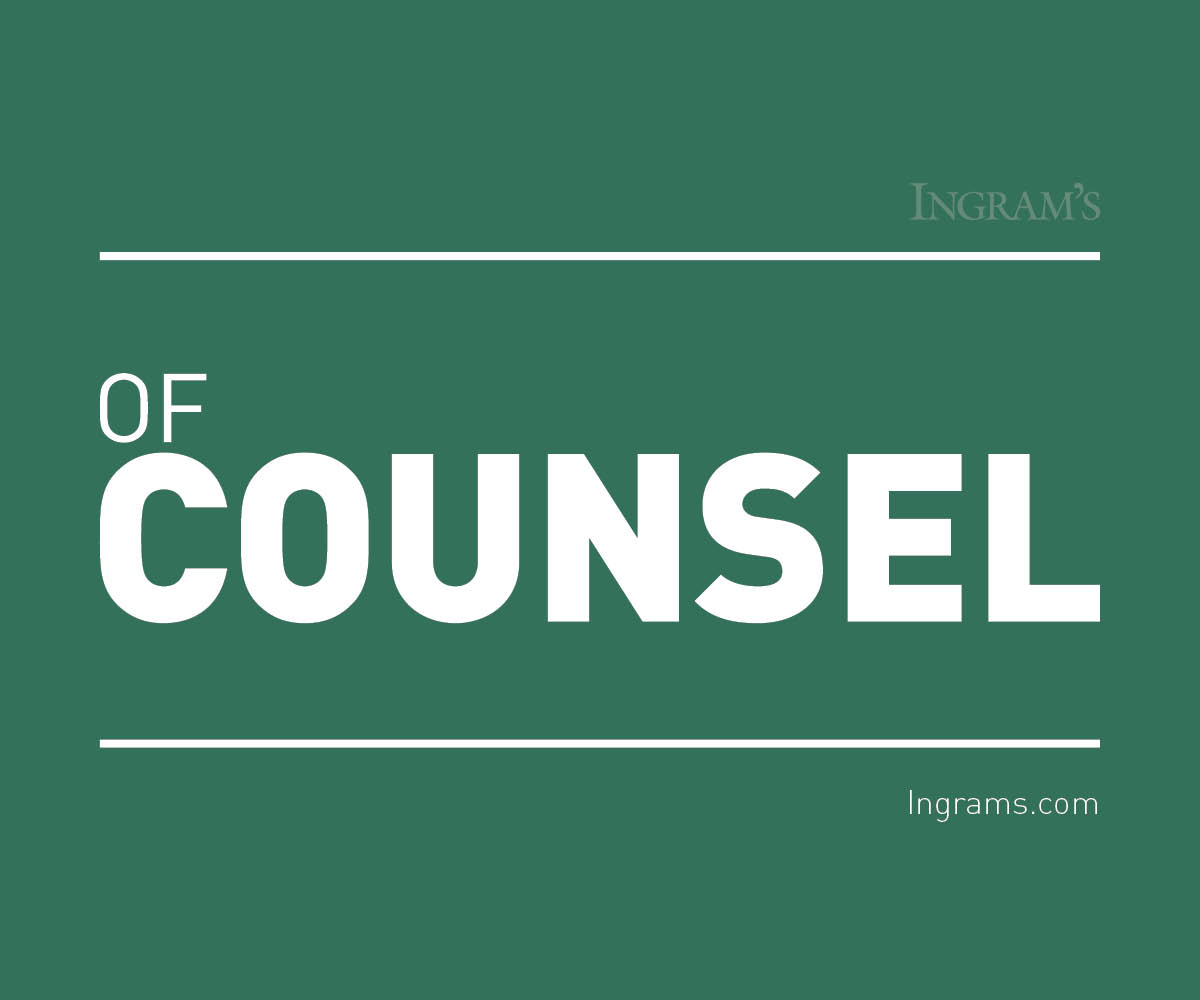HOME | ABOUT US | MEDIA KIT | CONTACT US | INQUIRE
HOME | ABOUT US | MEDIA KIT | CONTACT US | INQUIRE
When it comes to leadership, those who do well are in some ways obligated to do good. That’s never going to change—nor should it.
 */?>
*/?>
As Ingram’s celebrates its 20th year of recognizing 40 Under Forty honorees, I too want to congratulate this year’s class, including the much-deserved recognition for Brian Baggott from Dentons. I was fortunate to be the recipient of this recognition back in 2005, which is starting to seem like a long time ago…
 This edition of Ingram’s has a focus on leadership, which clearly all of this year’s recipients embody. In a world where there is a discussion on driverless vehicles, artificial intelligence and the Internet-of-things, when it comes to leadership, there is still much to the old adage that “the more things change, the more things stay the same.” This rings true not only in the law practice, but in the business world generally. There are basic tenets to leadership that evolve over time, but the underpinnings are consistent.
This edition of Ingram’s has a focus on leadership, which clearly all of this year’s recipients embody. In a world where there is a discussion on driverless vehicles, artificial intelligence and the Internet-of-things, when it comes to leadership, there is still much to the old adage that “the more things change, the more things stay the same.” This rings true not only in the law practice, but in the business world generally. There are basic tenets to leadership that evolve over time, but the underpinnings are consistent.
First and foremost is respect and trust. To be a leader, a culture of mutual respect must be created and followed. It is easy to say that, but is a challenge faced every day in the workplace.
A couple of weeks ago, I attended a training session on unconscious bias. The approach to the seminar was very interesting because it discussed the way the brain works unconsciously, and the presenter gave a few examples. Once the attendees recognized how we “unconsciously” take actions and make decisions every day, it became much easier to recognize how that could translate into an unconscious bias in how we might treat people in the workplace or society at large. We must take into account our unconscious bias and endeavor to overcome it to truly show the respect and trust necessary to be a leader.
Another leadership tenet is empowerment. It is critical that companies empower their business leaders and that management empower its people. Only through this will businesses thrive and employees feel like valued contributors. I recently attended a breakfast which featured a panel of manufacturing companies. One of the panelists discussed a culture at their company of “kaizen” which means change for better or continuous improvement.
They essentially have a suggestion box and reward employees for coming up with ideas to better the business. It is through incremental and continuous improvement that the company becomes more efficient and the workers feel enabled and become difference-makers. Without such empowerment, people become disenfranchised and look for other opportunities. Although the notion of kaizen seems to have traction in the manufacturing world, it can and should apply to the professional-services industry.
There are basic tenets to leadership that evolve over time, but the underpinnings are consistent. And at their core is continuous improvement in all things.
Another leadership tenet is community and civic engagement. I am reminded by a quote by my prior university president from my alma mater (Illinois Wesleyan) who said: “Go out into the world and do well. But more importantly, go out into the world and do good.” I think about that quote in how I approach my practice and we have developed a work culture which strongly supports and promotes such involvement.
Clearly, the 40 Under Forty recipients are very active in the community and take this to heart. But I always caution our folks to not join a non-profit board as a way to generate business; instead, do it because it is the right thing to do and to find something you are passionate about. I think Kansas City is somewhat unique in its promotion by the business community of civic and community engagement.
Diversity and inclusion are critical to a strong company culture and client service. Diverse backgrounds and opinions make a workplace thrive. Inclusion comes at every level—from assignments to client opportunities. The term “tribalism” is being used a lot in society now and it is critical to solid leadership to not surround yourself with only other people like you.
As we discuss leadership, I think about the impact that social media has in the business and legal world. Although in a different context, the ABA was once asked, “When is a lawyer not a lawyer?” The answer is that a lawyer must comply at all times with all applicable disciplinary rules of the Code of Professional Responsibility whether or not he or she is acting in his or her professional capacity. A lawyer (and all business professionals) must keep this in mind on Twitter, Facebook and other social-media outlets.
Although I started the article with the quote “the more things change, the more things stay the same,” it is clear that we continue to learn and improve every day—which is the basis of kaizen—as we incorporate these leadership tenets in today’s business climate.